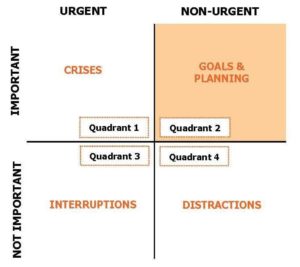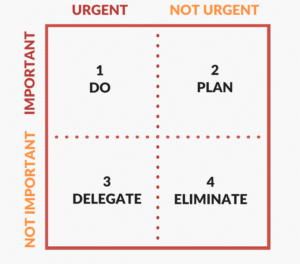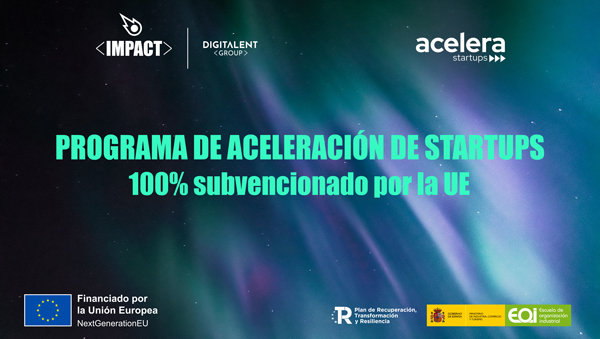Stop chasing the money!
Why do startups focus so much on investment? It's a mistake to put all energies on that
When asked about writing about the subject above, I make a reflection on whether there is an excessive tendency by startups to seek successive funding rounds appealing to the need to invest more and more.
If we define a startup as an innovative company with a strong technological component, it is logical to think that the early stages are focused on the development of a product. For brevity, in this article, I’m going to use the word “product” to represent anything a startup is looking to launch—a product, service, offering, or brand. The essential characteristics of the product, and I mean those that will be crucial in its acceptance by the consumer, will not yet be proven and evident. And at some point in this phase, the go-to-market decision will have to be made.
Many times, what I have found is that entrepreneurs are so in love with their idea that the tasks of creating a company bore and bother them. In many cases they are scientists, technologists and maybe not businessmen or managers and their passion is in the continuous development of the product, looking for new derivatives, more features, … more investment in short. Comes to mind a quote from Reid Hoffman, founder at LinkedIn, “If you’re not embarrassed by the first version of your product, you’re launched too late”[1]. Agile methodologies, as lean startup is, help to optimize the process because collecting information from a minimum viable product (MVP) is less expensive than developing a product with more functions to prove.
“If you’re not embarrassed by the first version of your product, you’re launched too late”
If at any time during this process (development or early stages of commercialization) there is not enough cash, a new financing process is launched. This is usually the time for business angels, since the company is still at a very early stage to go to the banking circuit. Crowdfunding platforms will be other financing alternatives available to startups.
Measuring what the financial effort should be to reach the market is crucial. Scaling up too fast at this time can become a mistake because investing in this aspect involves hiring not only a commercial team[2] but marketing expenses and others related. If we do not have properly adjusted delivery or service processes, they will not generate a satisfactory user experience, which can lead to permanent damage to the company that cannot be overcome in the future, if exists. It is important to grow, but it is also important to define well the processes and at the same time create a solid corporate culture. Two necessary visions of the company: outward and inward.
Another circumstance that, in my opinion, leads a startup to focus excessively on investment and growth is the mind of the entrepreneur. In his mind he is not building a company, in a humanistic sense, with long-term survival vision. He considers it more as a project, a concept with a greater temporality component; that is to say, it begins, it ends and then searches for another[3]. He liked the way, and having good luck (and with effort, of course) has generated him a good amount of money. He thinks what he has to do is to replicate it, and quickly. And the current climate that surrounds the startup ecosystem leads him to it. It is assumed that what makes a successful startup is the volume of funding rounds that are achieved “to face investment and growth plans.”
And in this sense, and now I am going to the last of this set of reflections that I do not want to be extended more than necessary, the CEO[4] should not forget the fact that growth is important, but it must be constantly monitoring the cash. Because there will come a time when cash problems cannot be solved with new capital, but sales (and collections, what is high sensitive) and profitability will have to be shown. At least positive gross margin. A success is to get an investor, but SUCCESS is to sell, that your idea becomes a marketable and accepted product. And, many times, a lot of energy is wasted in contacting and trying to convince VCs when efforts should be focused in “building a company”.
[1] https://learn.onemonth.com/if-youre-not-embarrassed-by-your-startup-you-launched-too-late/
[2] In a traditional understanding, and with a financial-accounting view, creating a commercial team is not an investment, but this is so often presented to justify the amounts at funding rounds.
[3] https://www.huffpost.com/entry/entrepreneurs-are-the-new_b_9481308?_guc_consent_skip=1567761947
[4] Now he is a real CEO, once he (or she) has incorporated external partners into the capital.
About the author
I wanted to be like Alan Parsons. But finance and strategy stole most of my professional brain (but not my soul 😉). I have worked as a CFO or managing director at several companies, and as a external consultant I have carried out dozens of projects aimed at business improvement. I have also invested and advised several startups. Others, even, were not born as such.
Ah!, I have never run a marathon, but just up to now. I mustn´t lose hope.
Always learning.
In IMPACT, we proud ourselves of having the best mentors for the startups that go through our programs.
Francisco Javier López Somoza is part of our top-tier mentor network and helps startups sharing his extensive knowledge in Corporate Finance, Banking, Business Development, Digital Transformation and Strategic Planning.
Even more IMPACT
Liked this post? Subscribe to our newsletter and stay on top of the latest IMPACT news. Open calls, job postings, opportunities for startups, and more!








